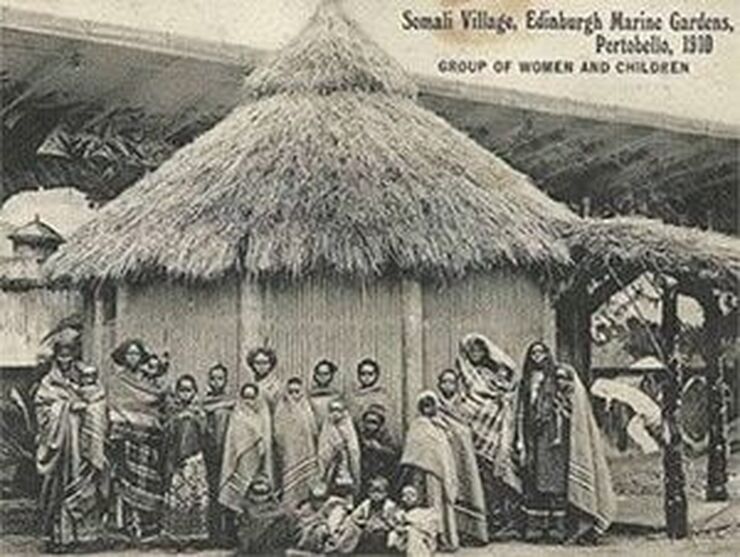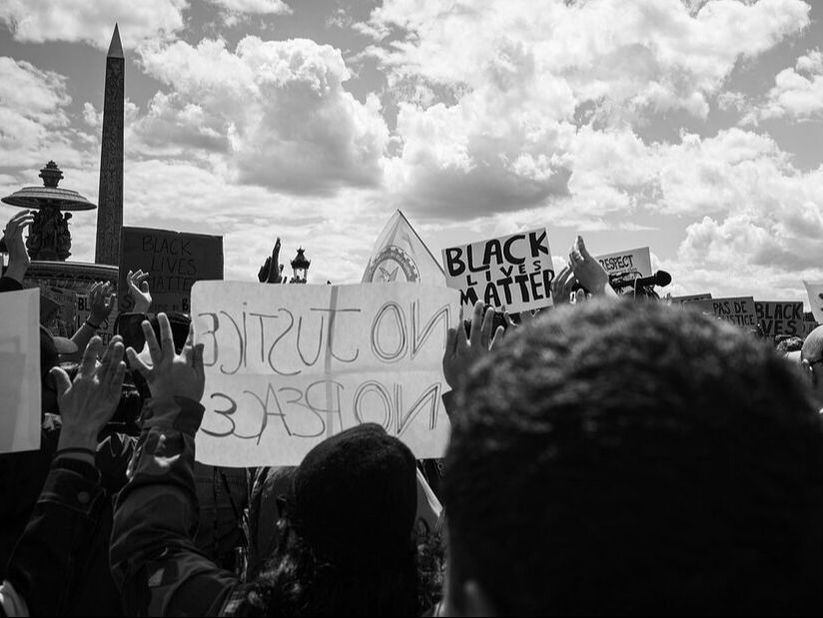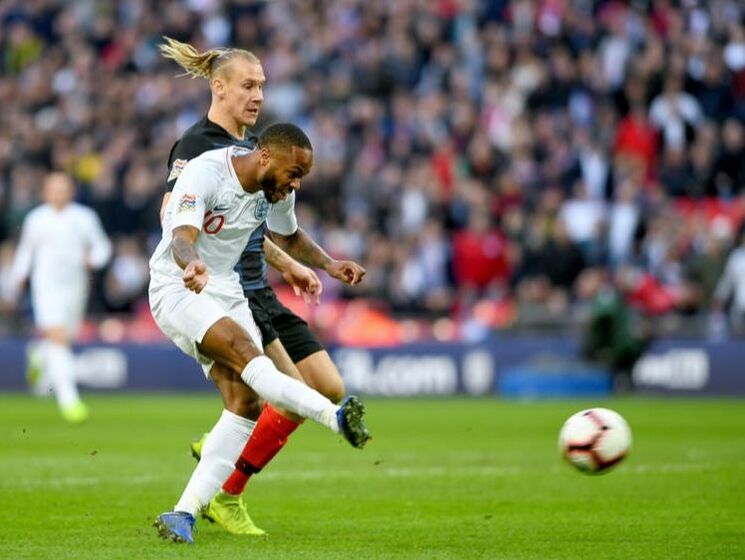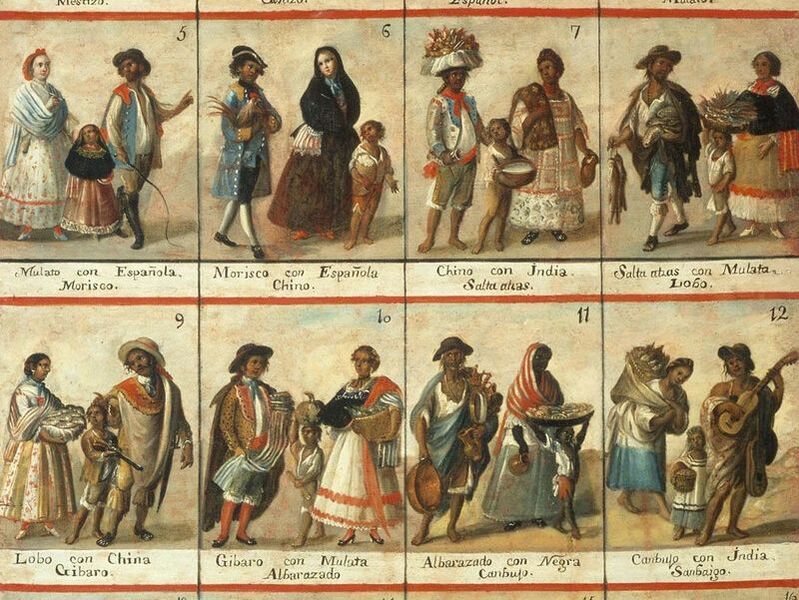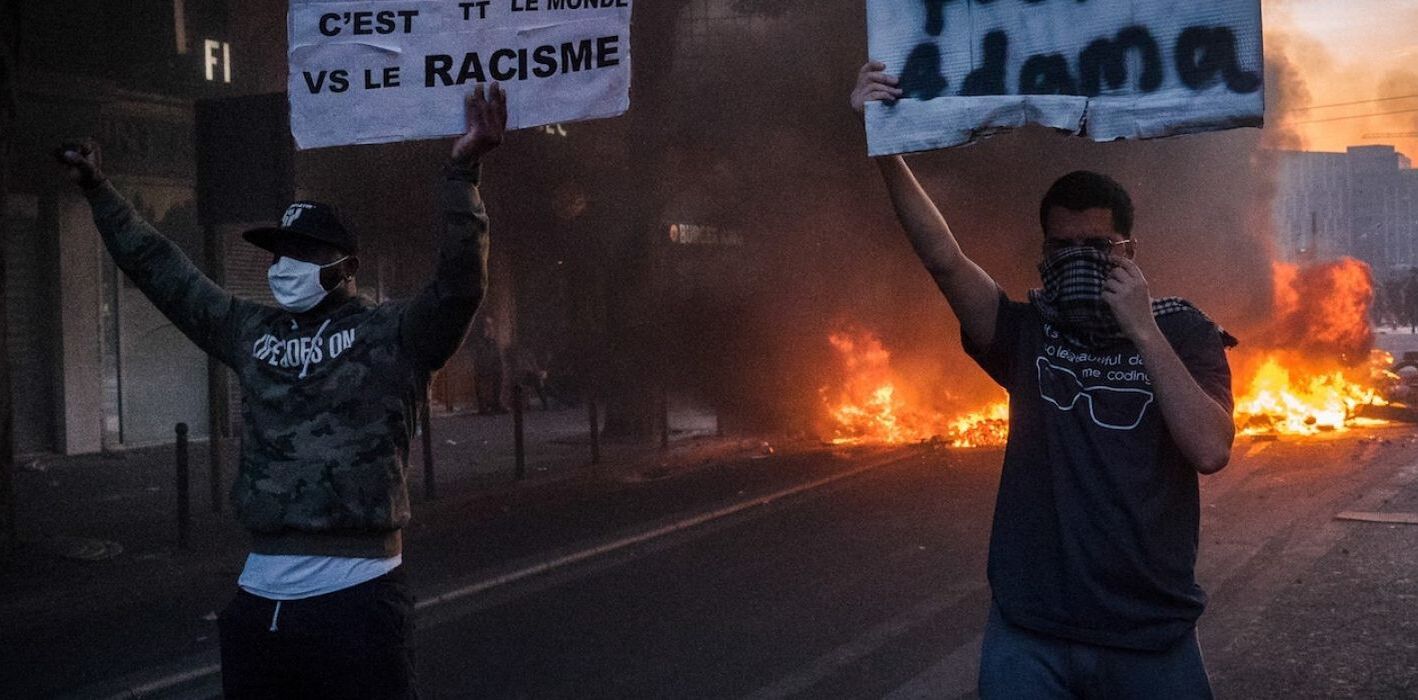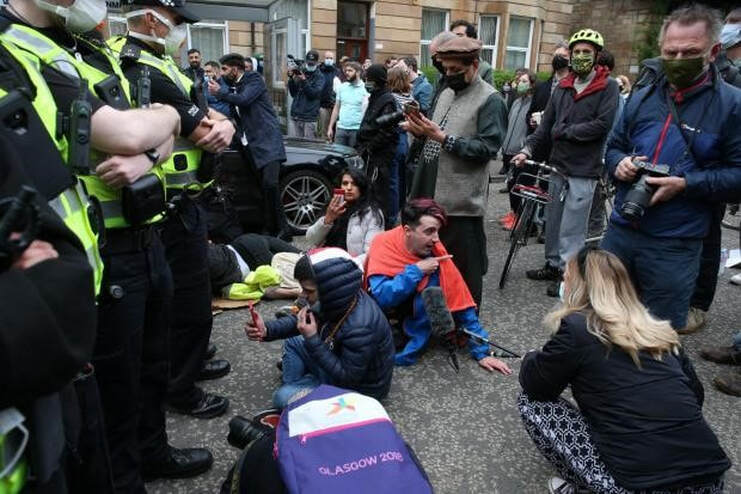|
|
|
Cross-posted from British Sociological Association
How is history written and by whom? These are questions that have been raised with frequency across the decolonising movement and in particular, by the Cadaan Studies movement, which has focused on knowledge production relating to Somali people. Started in 2015 by Harvard doctoral candidate, Safia Aidid, the movement provides a framework through which to critique the role of whiteness and white privilege in shaping narratives about Somali people. The canonical work of Glaswegian-born I.M. Lewis has come under particular scrutiny not in the least due to his twin roles as anthropologist and administrator for the British colonialists in (then) British Somaliland in the 1950s. Yet whilst the colonialist activities of a Scotsman in Somalia shaped global discourses about Somali people, the narratives of Somali people in contemporary Scotland, many of whom now live in the same area of Glasgow in which Lewis was born, remain absent from local and transnational histories. We unravel and critique this absence. Today in Scotland, there is a Somali population of up to 4000 people. The population has grown in the main since 1999, following the state-enforced dispersal of asylum seekers to sites around the UK. Despite residing in Scotland for nearly two decades, the Somali population continues to be framed in these terms, considered ‘new’, as ‘migrant’; as without history prior to arrival in Scotland and without historical links to Scotland. These narratives obscure a much longer history of Somali people living in Scotland, and of Scotland’s relationship with Somalia.
0 Comments
Cross-posted from Georgetown Journal of International Affairs.
Recent events in France have revealed how race remains such a loaded concept in French society. But policymakers must emphasize that this is nothing new, and that public policies need to address historical and present racism in France in order to move forward. Events in recent months have once again made race and racism part of public debate in France. There was the beheading of school teacher Samuel Paty in a banlieue, or suburban outskirt, north of Paris in October 2020. Then the beating, captured on video, of Michel Zecler, a forty-one-year-old Black music producer, by four police officers last November in Paris. These debates have even included accusations of importing Anglo-American or US conceptions of race and racism to the French context, as evident in a recent interview with President Emmanuel Macron in the New York Times and movement by his administration to investigate French universities for importing American theories. This is in addition to a proposed bill making it a criminal offense to share images of police officers on social media platforms, amid a growing mobilization against police violence targeting Black and Maghrébin-origin individuals.
Cross-posted from The Conversation.
On BBC Sport, Match of the Day pundits Ian Wright and Alan Shearer recently had a conversation about racism in football. Shearer, the white ex-England international striker asked his black ex-teammate Wright: “Do you believe a black guy gets treated differently to a white guy?” Wright’s response was unequivocal: “Without a doubt, Al!” Black players face discrimination on every level: public (anti-black racism from fans in stadiums), private (abusive DMs on social media) and institutional (lack of management and coaching opportunities). Wright, however, also pointed to the disparate treatment players receive in the press, referencing recent reports on similar property investments by strikers Marcus Rashford and Phil Foden. Rashford, who plays for Manchester United and is black, was framed an extravagant, cash-rich, cash-loose footballer. Foden, meanwhile, who plays for City and is white, was described as the local Stockport boy looking after his family. Why do we need the 'racialized' in 'racialized capitalism'?[1] In his recent article for Field Notes,[2] Charlie Post insists on the need to think racism and capitalism together but is keen to move the discussion 'beyond racial capitalism' perspectives[3] because of disagreements about the spatial and temporal origins of racism, and about the explanation those perspectives offer for the reproduction of racism in capitalist societies. While there is much to welcome in Post's carefully-crafted account, there are four areas of disagreement to which I want to draw attention. First, whatever substantive critiques one might wish to level at racialized capitalism perspectives, it is premature to speak of going 'beyond racial capitalism' or to claim that 'the notion of 'racial capitalism' is redundant [because] there is no 'non-racial' 'capitalism,' without a more thorough consideration of the political and theoretical work these perspectives perform in the present moment. Post certainly acknowledges that they emerged out of the reverberations of collective action against state racism, particularly the desire of a new generation of activists to make sense of racism's continuing power to inflict damage and death. However, there is much more that needs to be said on the matter. In particular, racialized capitalism perspectives help make transparent the constitutive role racism played in the formation and reproduction of capitalist modernity. This is no mean achievement, given that much of public discourse, along with liberal and critical thought, continues to minimize and underestimate its structuring power and significance.
Cross-posted from Spectre.
'For us who are determined to break the back of colonialism, our historic mission is to authorize every revolt, every desperate act, and every attack aborted or drowned in blood.' – Frantz Fanon, The Wretched of the Earth [1] On July 19, 2016, Adama Traore, a 24-year-old Black construction worker, was killed after an arrest by three police officers in Beaumont-sur-Oise, a northern banlieue, or suburban outskirt, of Paris. Adama was stopped for an identity check — a not uncommon measure by which police officers stop individuals and ask for their identification (often disproportionately targeting Black and Arab individuals). In this case, Adama was taken to a nearby police station and by the time he arrived, he was dead. The police originally stated that he had died of a heart attack, and then said he had prior health conditions which caused his death. In late May, the three police officers were cleared in their involvement for Adama’s death.
I’d just handed the baby over to my partner after the breakfast shift last Thursday morning when a friend messaged me. Activists had tweeted that an immigration enforcement raid on Kenmure Street in Pollokshields was being blocked by local people. My friend lives on the other side of town, but I live round the corner. ‘On way’, I replied. I pulled some trainers onto my bare feet, told my partner what was happening, and left the house.
The van was parked in front of another friend’s flat. 'IMMIGRATION ENFORCEMENT', with the targets of the raid inside. Ringed by police officers facing out, surrounded by protestors facing in. (I didn’t know until later that someone was lying under the van to stop it moving.) My friend was there at the front, face mask on, talking sharply to the police. His partner, nine months pregnant and with the home birth team on call, came out later with their two-year-old. Not that the home birth team would have been able to get through: police vehicles already blocked the street in both directions, up and down the block. I took a picture of the immigration enforcement van and the ring of police, and tweeted it. People on Twitter immediately noticed the black-and-white union jack with a ‘thin blue line’ down the middle that one of the officers was wearing.
Around 9.30am on Thursday 13 May I checked my phone for messages, as I was about to start making preparations for Eid dinner later that evening. One of the No Evictions Network activists had posted a photo of an immigration enforcement van in Kenmure Street in Pollokshields and said that he was going to investigate what was happening, and asked others in the network to come down to support him. As more and more members of the network arrived, it transpired that immigration officers had raided the home of two men, Sumit Sehdev and Lakhvir Singh, and put them in the van. The immigration van couldn’t leave because it was surrounded by activists, and one of them had got under the van (and would stay there for eight hours to ensure it wouldn’t go anywhere). Activists reported that Police Scotland were helping immigration officials by trying to persuade the activists to disperse. In solidarity, thousands of Pollokshields locals as well as people from across the city gathered to prevent this immigration raid. The two men, both migrants from India, were eventually released.
Throughout the day I was reading news reports and comments on social media about how friendly and welcoming the people of Glasgow are to newcomers, as if that was enough explanation for the overwhelming solidarity against this particular immigration raid. Whilst Glasgow has a reputation for being friendly, it also has a history of racism going back to the days of empire and the attacks on black seamen in 1919. I also read reports crediting the release of the two men to the actions of individual activists. This is mistaken.
The territorial realization of the Israeli state produced a new category of stateless people: Palestinian refugees. Those expelled from their homes, villages and land during the onset of the Nakba (catastrophe): a large scale ethnic cleansing process executed in 1947-48 Palestine, has resulted in the creation of one of the largest and longest standing protracted refugee communities world-wide today. The unresolved question of Palestinian displacement raises important considerations in, what scholars of redress have named, an era of settler colonial reparations. One line of inquiry that remains relevant for thinking about the future of redress to Palestinian displacement is the following: How did an Indigenous Palestinian society with historical ties to land come to be internationally governed as refugees external to the land? Further, how might we think about the history of redress and humanitarianism in the early years of Palestinian displacement as one tied to a broader genealogy of race and settler colonial formations in Palestine?
This article is based on a seminar on ‘Nationalist Populism and Postcolonial Responses’ with Sivamohan Valluvan chaired by Gurminder Bhambra at the BSA Postcolonial and Decolonial Transformations Study Group that took place on 18 February 2021.
Dominant multidisciplinary discursive frameworks, at this historical conjuncture, are structured by postcolonial common sense modes of thought that have been sculpted out of colonial and postcolonial nationalisms. Postcolonial common sense can be defined by a ‘grid of intelligibility’ (Macey 1978, 365) composed of ideas of separate communities with specific histories and cultural trajectories, distinct diasporas and regions, universal, transhistorical ethnic and religious categories and different forms of racism (Mamdani 2012; Stoler 2008). Academic narratives that reproduce postcolonial common sense do not demand explanation. They are not uncontested but they are understood by all. This can be illuminated by the need to carefully explain and defend interpretations which do not utilise common sense concepts and the taxonomies that they lead to.
Ken Carter, whose character inspired the realisation of the inspirational 2005 basketball movie, Coach Carter, decided to end the 1999 undefeated streak of Richmond High School basketball team because of his players' poor academic performance. His decision to lock the school gym and cancel the upcoming basketball matches, despite opposition amongst the Richmond community, garnered enormous US media attention framing it as an elevation of education over sports. While extensively elaborating and rationalising the gym shut-down in front of his students, Coach Carter posed a rhetorical question that resonates amongst recent events of police brutality and racial injustice in the US: where do these students end up after graduating high school? The answer for those who do not make it to college or into a professional sports career is, for many, probably prison.
Even though the US imprisonment rates have recently experienced its most significant decline in the last two decades, the Bureau of Justice Statistics (2018) data indicate that the US prison population's racial and ethnic makeup remains highly disproportionate to the actual demographics in the country. According to the US Justice Department, black Americans represent 33% of the sentenced prison population – a number nearly triple the 12% share of their US adult population. Even though the racial margin of incarceration has been in decline, black Americans constitute two times the rate of imprisoned Hispanics and slightly above five times the rate of imprisoned whites in the United States.
When writing public-facing policy-related reports, it is pro forma that the author(s) put forward a series of recommendations. Most of the time, writing recommendations is a data-/evidence-led process. What is more, some of the standard academic advice on writing recommendations includes things like ensuring that the recommendations speak directly to the aims and objectives of the project, acknowledging any limitations of the research and, where relevant, proposing further research. It also strikes me that writing recommendations can be an afterthought – a task left until the final full stop has been put on the conclusions.
Over the past seven years I have been involved in co-authoring reports on subjects ranging from the public impact of Irish Republican and Loyalist processions in Scotland, workplace racism, and more recently racism, institutional whiteness and racial inequality in higher education. Towards the end of this summer, I carried out a thematic analysis of the recommendations put forward in key government and non-governmental reports relating to racism and racial inequality in Britain on behalf of the Stuart Hall Foundation. Eight recurring themes emerged from the analysis of the 589 recommendations advanced in thirteen reports, ranging from the 1981 Scarman Report into the causes of the Brixton riots, through to David Lammy MP’s 2017 report ‘into the treatment of, and outcomes for Black, Asian and Minority Ethnic individuals in the criminal justice system’. Truth be told, this research was a depressing and blunt reminder that the recommendations put forward in reports are rarely ever acted upon, even though the report findings are typically greeted with performative enactments of shock, shame and concern. Indeed, the failure to act evidences a longstanding lack of political commitment to unsettling the coordinates of racial hegemony and disturbing orthodox ways of doing things. So much so, I am reminded of the words of the late Black novelist, playwright, essayist, poet and activist, James Baldwin, who once asked, ‘How much time do you want for your "progress?"’. COVID-19, BAME communities and local football: can local BAME football win against COVID-19?16/9/2020
On 26 May 2020, professional football in England resumed after a three-month shutdown in response to the COVID-19 outbreak in the UK. The disproportionately high COVID-19-related mortality rates among Britain’s black, Asian and minority ethnic (BAME) communities prompted some debate among football professionals, journalists and academics as to the potential higher risk ‘project restart’ posed for black professional footballers compared to their white peers (Minhas et al, 2020). Nonetheless, the launch commenced, and fears were alleviated (initially at least) by the implementation of a robust test, track and trace system and by clubs operating extraordinarily high levels of surveillance and control over their players’ daily activities.
On 12 September, the Football Association in England (FA) ‘restarted’ the non-professional format of the game. By comparison, there has been much less public scrutiny of this roll-out, and especially in relation to broader questions around public health. Or to the potential of local football to contribute to the disproportionately high COVID-19 mortality rates among Britain’s minority ethnic communities. The absence of debate is quite remarkable given that, according to the FA, there are currently over 3,000 non-professional women’s, men’s, youth and mini-soccer football clubs that play on a ‘Saturday’ across England, compared to just 92 professional clubs. This is also surprising given the long history and relationship between local football and Britain’s BAME communities.
A couple of years ago, I shared a paper-in-progress with some colleagues. I got a lot of wonderfully kind and collegial feedback, but I noticed that something was amiss between my own home base of sociology and other disciplines that theorise emotion. At the mere mention of the name Lauren Berlant, two people reeled back in their chairs, rolling their eyes and groaning in exasperated derision. The centring of Stuart Hall's work in my paper perplexed one colleague, who explained that 'we've transcended Hall with Pierre Bourdieu and Jeffrey Alexander'.
Bourdieu and Alexander, I couldn't help noticing (especially by contrast to Hall), are decidedly less adequate for understanding race and, to a lesser extent, gender. And unlike Bourdieu and Alexander, who are claimed in the name of sociology, Hall and Berlant can be considered cultural theorists, though they've significantly influenced social theory. The encounter I've just described sits where these two terrains of struggle meet: disciplinary politics and politics more broadly. I want to suggest that it would be fitting to bring the same principles that guide better political praxis into our inter/disciplinary engagements. The haste with which some sociologists of emotion dismiss interdisciplinary fields such as cultural studies, critical race studies, and postcolonial studies is in one sense perhaps not surprising. Despite the significance of emotion in the organisation of every aspect of social life, keyword searches for recent publications on emotion within prominent journals in these fields produce surprisingly scant results. Other concepts, such as 'attitudes' and 'lived experience', feature more prominently. For emotion theorists seeking an excuse to bypass interdisciplinary work, the lexical differences seem sufficient. 'There's nothing relevant for me here. This isn't how “we” do it.' |
|
Explore Identities at tandfonline.com/GIDE |
|
The views and opinions expressed on The Identities Blog are solely those of the original blog post authors, and not of the journal, Taylor & Francis Group or the University of Glasgow.
